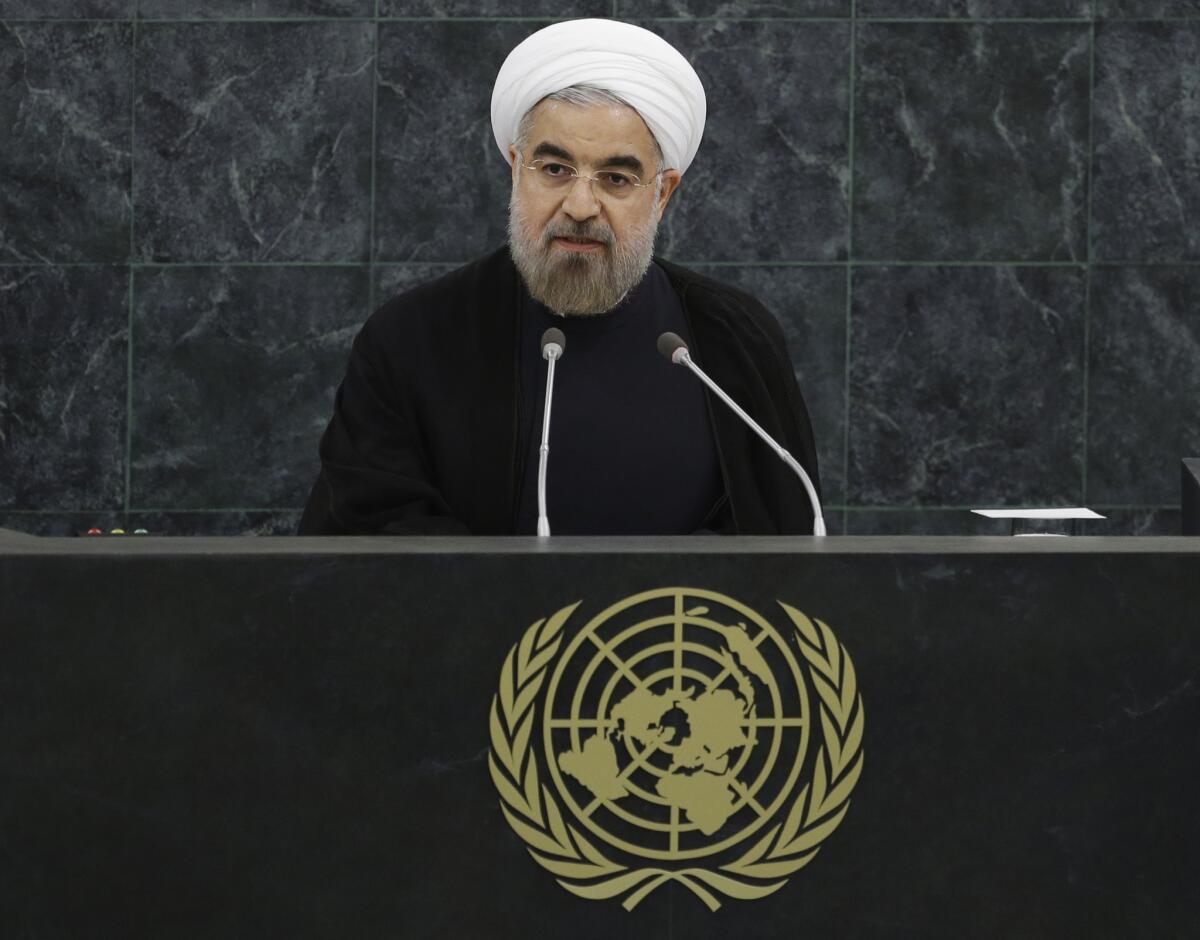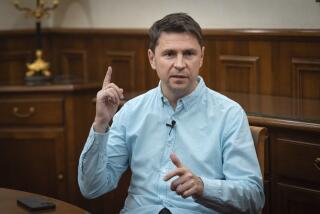How to negotiate with Iran

This month in Geneva, at the first negotiations over its nuclear program since the election of President Hassan Rouhani, Iran took an unprecedented step: It negotiated. For the first time, Tehran presented an actual vision of the endgame for the talks with six world powers, and how to get there. However, contrary to expectations, it offered no concessions, leaving serious questions about Iranian purposes. With another round of talks scheduled for next week, U.S. negotiators would do well to follow principles that signify the core interests at stake.
FOR THE RECORD:
Diplomacy: In an Oct. 29 Op-Ed article regarding Iran, the affiliation for Dennis Ross, one of the authors, was incomplete. It is the Washington Institute for Near East Policy.
The most pressing national security threat facing the United States remains preventing a nuclear-capable Iran. The preferred way to achieve that objective is through a diplomatic agreement. But diplomacy can only be that — a means to an end.
As Secretary of State John F. Kerry has said, a “bad deal is worse than no deal.” A deal struck for its own sake would still allow for a nuclear Iran; undermine the legitimacy of any subsequent U.S. attempts or, much more likely, Israeli attempts to arrest Iran’s progress by military action; discredit and compromise U.S. credibility; and weaken, if not destroy, the decades-old international nonproliferation regime.
Therefore, the United States should only pursue an agreement within certain parameters, to ensure the deal actually furthers the interests of the U.S. and its allies. As we explain in a new JINSA Gemunder Center report, there are six such principles that should guide the negotiations with Iran.
First, Iran must resolve outstanding international concerns. The International Atomic Energy Agency has repeatedly complained that Iran has not been forthcoming about its nuclear activities. Indeed, the IAEA in 2011 expressed its “deep and increasing concern about the unresolved issues regarding the Iranian nuclear program, including those which need to be clarified to exclude the existence of possible military dimensions.” Iran must quickly address all outstanding IAEA concerns as part of any deal.
Second, Iran must adhere to international legal requirements. The IAEA’s repeated condemnations of Iran have spurred the U.N. Security Council to pass six resolutions requiring Tehran to “suspend all enrichment-related and reprocessing activities” and “to implement without delay all transparency measures as the IAEA may request in support of its ongoing investigations.”
Iran has repeatedly disputed the legality of these resolutions, claiming the Nuclear Nonproliferation Treaty, or NPT, grants it a right to enrich uranium. But no such right exists. Iran’s defiance and distortion of international legal demands threatens to unravel the nonproliferation regime. To preserve it, negotiators must reassert the Security Council’s authority and the NPT’s true purpose.
Third, deny Iran nuclear weapons capability. The main concern about Iran’s nuclear program is that it is on the verge of producing enough weapons-grade uranium for a nuclear device. An acceptable deal must not just freeze but tangibly roll back its ability to do so. This will require limits on size and enrichment level of its uranium stockpile, number and type of operating and installed centrifuges, design of enrichment facilities and possible plutonium production at the Arak heavy-water reactor.
Fourth, impose a strict inspections regime. Just because Iran agrees to a deal does not mean it will stick to it. It has tried to build each of its current enrichment facilities covertly. To prevent it from attempting to do so again, negotiators should require Iran to agree to more rigorous monitoring of its nuclear program.
Fifth, negotiate from a position of strength. Too often, Iran has used negotiations to extract concessions, undermine international resolve and play for time. In the few instances it has compromised, it has been because of the threat of force. The success of these talks will hinge on Iran understanding that there will be very real and damaging consequences if negotiations fail.
This will require at least these U.S. actions: Intensify sanctions and incentivize other countries to do the same, issue more forceful and credible statements that all options are on the table, initiate new military deployments and make clear the support for Israeli military action if conducted.
Finally, do not waste time. Iran will likely attain an undetectable nuclear capability by mid-2014, and perhaps even earlier, leaving scant time to both negotiate and verifiably implement a deal. It appears that Iranian Foreign Minister Mohammad Javad Zarif may have offered a timeline at Geneva for wrapping up negotiations. But given Iranian nuclear progress over the last 18 months and earlier unexplained activities, negotiators ought not accept a schedule that stretches beyond the point when it becomes impossible to prevent a nuclear Iran by other means. Implementing and making known a strict deadline for talks can dissuade Iran from using diplomacy as a cover while sprinting for the bomb, and reassure Israel so it does not feel compelled to act alone.
Negotiators should hew to these principles to avoid mistaking rhetoric for action, and must walk away from any agreement that violates them.
Dennis Ross is counselor at the Washington Institute for Near East Policy and was a senior Middle East advisor to President Obama from 2009 to 2011. Eric Edelman was undersecretary of Defense for policy in 2005-09. Michael Makovsky is chief executive of the Jewish Institute for National Security Affairs, or JINSA, and served in the Office of Secretary of Defense in 2002-06. They are members of JINSA’s Gemunder Center Iran Task Force.
More to Read
A cure for the common opinion
Get thought-provoking perspectives with our weekly newsletter.
You may occasionally receive promotional content from the Los Angeles Times.










